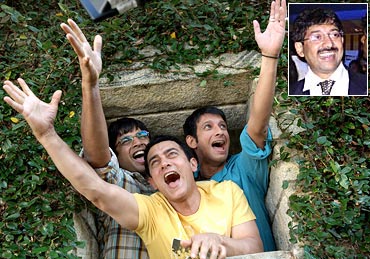
Most of you who have seen 3 Idiots will agree that the film's hillarious dialogues and scenes are just one of the reasons the movie is such a hit.
And while Raj Kumar Hirani deserves praise for penning some of the lines, there's another man who belongs right up there with the director. That man is Abhijat Joshi, a professor of English at Otterbein College in Westerville, Ohio, who co-wrote 3 Idiots with Hirani. Joshi has earlier worked with Hirani in another of the director's blockbuster, Lage Raho Munnabhai.
Joshi tells Patcy N all about working in the two blockbusters and more.
How did you get associated with 3 Idiots and Lage Raho Munnabhai?
I studied in the Gujarati medium, which is one reason why I was able to write Lage Raho Munnabhai as I had access to Gandhi's words in his own language. I studied Science to become an engineer but later changed to Arts because I thought I would make a bad engineer. So I studied English Literature and started teaching in Ahmedabad after my graduation. I wrote a play, Shaft of Sunlight for which I won the BBC World play contest in England. Vinod [Vidhu Chopra, producer of 3 Idiots, Lage Raho Munnabhai] happened to see the play and that's how we started working together.
He saw the play and sought you out?
He was in England for the Birmingham Film Festival where his films were being showcased. He saw my play and loved it. He left his visiting card for me at the theatre. I was in Paris at that time. Anyway, I got the visiting card and contacted him when I reached Mumbai. The very first thing that he asked me as soon as I called him was, 'you are a damn good playwright. When will your writing get corrupted?' I replied, 'never'. He then said, 'The day you get corrupted you will be thrown out'. He then offered me a job and I started writing with him. But my film with him, Kareeb was a huge disaster. Vinod almost lost his house because of that.
Why do you think Kareeb failed? Did its failure help you in future?
I now know why Kareeb did not work. It was because in the second half, my hero was passive and static. This mistake helped me when we were writing Lage Raho Munnabhai. In the early draft of Lage Raho Munnabhai, we had written about a hunger strike. But the story failed to take off from there. I remembered the mistake with Kareeb so instead of making Munna go on a hunger strike, we decided to let him go the radio instead. That's how the whole radio thing came about. Imagine if we had gone with the early draft?
Why the shift to the US?
After Kareeb failed, I realised that I needed to learn a lot about screen writing. I was just 23 when I wrote my first screenplay. I was very raw. I needed more exposure so I joined Michener Center for Writers in the US and lived there for three years. I started teaching there to learn about their culture. Now I live six months here [Mumbai] and six months there. When I did not have a job in the US, Vinod sponsored me for one whole year. He told me that he would support me till I got a job.
You're based in the US. How do you and Hirani work together?
I come every six months to India while Raju comes twice or thrice to the US. So we stay connected for 8 to 9 months. Emails and telephone take care of the rest.
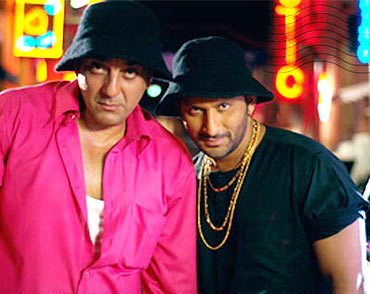
How are your brain storming sessions like?
Our brainstorming meetings are normally very serious. We go for long walks which stretch for two to three hours or more. Walking clears our heads. We then sit with our recorders and chat. We mostly sit in friendly silence.
Is it true that you don't go home till you crack a scene?
Yes, sometimes. Lage Raho Munnabhai was written under tremendous pressure and time constraints. We made a pact not to return home till we cracked a scene. Once it started raining but we continued working round the clock. We were starving by the end of it so we went to a restaurant which was closed at that time. We begged them for a loaf of bread and some olive oil. They agreed to let us in for 45 minutes. In those 45 minutes we cracked the pension office scene for Lage Raho Munnabhai.
Omi Vadiya's Balatkar speech in 3 Idiots has become very famous. How did you all come up with it?
We were driving on the highway [in the US] when we came up with that scene. We stopped several times to write the words that Rancho [Aamir's character in the movie] substitutes in Chatur's [Omi Vadiya] speech to honour the principal of the school. We wrote down hundreds of words before coming up with the Chamatkar to Balatkar idea.
While writing it we realised that after changing a word the scene may be done but beyond a point it would become monotonous. That's when we decided to introduce the word 'Dhan' and 'Sthan'. But even then the scene felt flat so we brought in the librarian who says 'Bol woh rahe hai par shabd hamare hai'.
Then we added the character of the minister who first laughs at Virus [Boman Irani]. We added two more characters to get the scene right. Adding layers like these take time so something that started in the US on a highway finished in Pune after a month.
How much of your screenplay is actually retained during shooting? Do you get upset when the screenplay gets changed at the last minute? Are you consulted?
I would say that almost everything is retained. There are no major structural changes.
Did you expect 3 Idiots to be such a big hit?
I did not. We had a feeling that it would be successful when we started seeing the reaction of the people. But we never thought it would break all records.
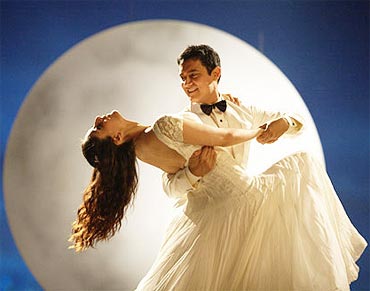
You have worked on Kareeb, Mission Kashmir, Eklavya so why not Munnabhai MBBS?
I was busy with my degree course. Also, I was writing two plays at that time.
Whose idea was Gandhigiri?
It was Raju's idea. He coined the word. At first we did not know the power of the word. It was just an idea that we had thought of for the scene where Munna was to go on a hunger strike. We had invented the word but were not sure when to use it. We used the word when Munna went on the radio in the second half of the film.
Bollywood still does not believe in bound scripts. Is that a big handicap for writers, as their work always gets changed on the floors?
Yes, it is a terrible handicap. That's why we never go out without a bound script though we are flexible because between the schedule there is time to improve. I find it very risky when I hear people going on shoots without a script.
How difficult is a writer's life in Bollywood? Do you think writers get the kind of credit they deserve?
I have worked with a production house that really respects writers. Even when I was very poor Raju had no qualms in leaving everything that he was doing to come and live in my small apartment. They respected the screenplay. If they hadn't then a Munnabhai 3 would have been out by now. We're not after the money and we won't compromise on the script.
All my life I have gotten credit for my work. After Lage Raho Munnabhai and 3 Idiots I got many offers to write scripts but I chose to stay here as I am very satisfied doing one or two screenplays every three years.
What next?
Raju and I have started working on another film. It might be a Munnabhai sequel but we don't know that yet. Right now we are creating a unique story and will know in two or three months time whether it lends into a Munnabhai story or is an individual story.
I also have another project, a Hollywood one, with Vidhu Vinod Chopra called Broken Horses. It is set in the border town of New Mexico. Vidhu is going to direct it.
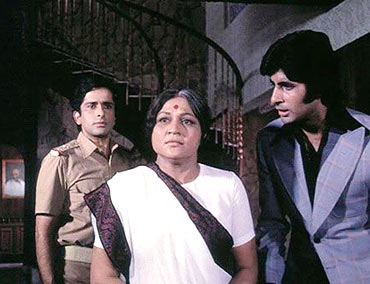
Why are your films issue based?
Raju and I both believe that a writer's job is to be a social observer. Therefore it is crucial for both of us to look at the society that we are both living in. We try to think not only as artists but as citizens too. We try to give a social comment in our films without sounding too preachy.
From where do you get your ideas? How much are they from your own life?
A great deal of it is from our own experiences. Every scene has to be unique but believable. Memory plays an important role here. We remember only those things in life which are very dramatic. It need not be your own incident or story; it can be someone's memories too.
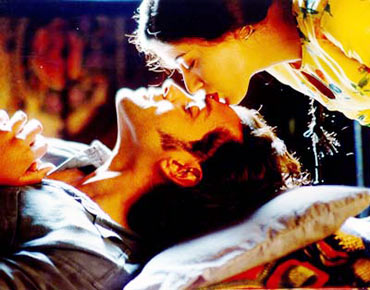
Which Hindi films do you think have brilliant scripts and why?
Deewar: For the drama. There are two conflicting philosophies -- one speaks of honesty while the other says honesty does not work in real life. Actually 3 Idiots was deeply influenced by Deewar.
Sholay: Because of its sheer epic nature. Again we are influenced by it too. We wanted 3 Idiots to have what Sholay had which were flashbacks and plot twists. We wanted hundreds of set pieces in 3 Idiots and that's why the film starts in a plane and ends in the mountains of Ladakh. And in between we had two weddings, a funeral, a speech and several details like the cuckoo and the astronaut's pen.
Saransh: Because of the story about how an individual can take on the system despite all odds.
Ankush: Raju and I both love Ankush and value the dialogues, grit and reality, and the camera angles. Plus there is the chemistry between the characters and their friendship.
Mughal-E-Azam: An epic film which had great attention to details. You can see the sweat in every line of Mughal-E-Azam.
Which is your own best script till date and why?
Lage Raho Munnabhai because the concept was so unique. To do justice to it was tough. Gandhiji was a weighty subject and to make it funny as well was difficult. That was the challenge: to make it entertaining without being too preachy.
Your worst?
Kareeb. Sheer inexperience on my part ruined Kamna Chandra's nice innocent story.